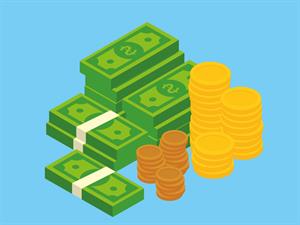
PUMPA - SMART LEARNING
எங்கள் ஆசிரியர்களுடன் 1-ஆன்-1 ஆலோசனை நேரத்தைப் பெறுங்கள். டாப்பர் ஆவதற்கு நாங்கள் பயிற்சி அளிப்போம்
Book Free DemoCapital:
Capital includes cash or other assets introduced into a business by the owners. In other words, capital means money.
According to Marshall, " Capital consists of those kinds of wealth other than free gifts of nature, which yield income".

Capital - money
The term capital is almost the same as money, and there is an important difference between the two.
Money is used for the purchase and sale of goods or services.
Capital, however, includes assets such as investments, stocks and other assets that are long-term.
All wealth are not capital, but all capital are wealth.
Forms of capital:
1. Physical Capital or Material Resources. E.g. Machinery, tools, buildings, etc.
2. Money capital or Monetary resources. E.g. Bank deposits, shares and securities, etc.
3. Human Capital or Human Resources. E.g. Investments in education, training and health, etc.
2. Money capital or Monetary resources. E.g. Bank deposits, shares and securities, etc.
3. Human Capital or Human Resources. E.g. Investments in education, training and health, etc.
Characteristics of Capital:
- Capital is a passive factor of production because capital on its own cannot produce anything until labour works on it.
- Capital is man-made. Machinery, tools and facilities of all kinds, constructions, railways and all means of transport and communication, raw materials, etc., are included in capital.
- Capital is an indispensable factor of production. This means capital is important for any business to start. Without capital other three Factors of production does not hold value.
- Capital has the highest mobility. It means, it is easy to move the capital from one country to another.
- Capital is productive.
- Capital lasts over time.
- Capital involves present sacrifice to get future benefits. If capital is invested now, in future, it will generate income or profit.